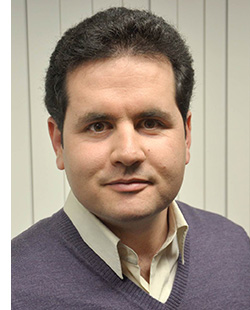
Shoresh Shafei
When you enter grad school, you are immediately faced with a barrage of choices: which courses to take, where to find funding, which topic to study, etc. It’s easy to see how finding an advisor can fall to the bottom the list. Yet it is one of the most important steps you can take toward launching a successful scientific career, since a good advisor can help you to tackle all those other decisions effectively. Everyone has different needs and priorities, but here are a few factors we think are crucial to consider.
Look for a leader. Labs run more smoothly with a strong leader, so you should take the management techniques of the advisor into account. A research group may include several postdocs, graduate students and undergrads, in addition to long- and short-term visitors. These people most likely have different motivations and goals, and they may come from diverse cultural backgrounds. A group leader must be able to balance these varied interests, help the members to work together constructively, and minimize conflicts.
Understand that training is key. He or she should spend time teaching you the skills you need to become a successful scientist. A graduate student isn’t just extra help around the lab; he or she is a mentee! The ultimate goal should be for students to become original thinkers, not to learn how to run an experiment on autopilot without
interpreting data or coming up with ideas of their own.

Sean Mossman
Learn communication skills. A good mentor should communicate effectively and urge you to do the same. He or she should encourage you to prepare and present talks at conferences, make informative and eye-catching posters, and build a helpful network of colleagues. You need to be thinking about all aspects of your education, and your advisor should too.
Consider your mentor’s accessibility. Many graduate students complain about having to wait for a long time to meet with their advisor or receive a response to their emails. Regular one-on-one interaction with your mentor is crucial to making the most of your relationship. It can be difficult to know in advance how available your advisor will be, but you can ask current or former group members about their experiences.
Think about research standards and reputation. Your future advisor’s research standards will become yours as well. Think about how his or her research projects are conducted, results are analyzed, and findings are reported. Is the emphasis on getting research published as quickly as possible, or does quality take precedence? What matters most to you? Finding an advisor with a good reputation will help you to build your own, especially as a young scientist preparing yourself for the job market.
Although there are many factors that contribute to your success in graduate school, having an effective and supportive advisor is extremely helpful. Do yourself a favor and give this decision the time and consideration it deserves by thinking about it early. The more information you have, the better choices you’ll make.
We would like to dedicate this article to Prof. Mark Kuzyk, a great friend and outstanding advisor, for his 55th birthday.
Shoresh Shafei (shafei@wsu.edu) and Sean Mossman are with the department of physics and astronomy at Washington State University in Pullman, Wash., U.S.A.
